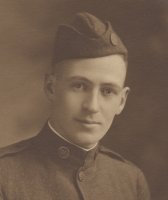Is it better to be hated, or ignored? To be thought evil, or irrelevant?
It's a common saying that hate is not the opposite of love—indifference is. Because the former indicates one cares, it can be more easily turned around.
I'm not so sure what I think about that now.
Secularism in America tends to be aggressive, even nasty. It is not neutral, but negative; not impartial, but specifically anti-Christian. (The latter is not too surprising, as we tend to be hardest on that which we think we are rebelling against.) Secularism, as practiced by most Americans, is also uneducated. We reject any number of faiths without knowing, much less understanding, their most basic tenets.
I know very little about Europe, and fully expect to be corrected by those who live there. But my experiences and impressions lead me to believe that European secularism is of a different sort. They are proud of their Christian heritage. They love their big, beautiful churches, and can give you a decent explanation of the facts of the faith and history that inspired them. They have respect for the value of education in the facts about a religion, even if they no longer believe them to be valid.
America's fierce secularism about holiday names must perplex the Europeans who have the sense to take whatever holidays they can, and have no problem calling them by their traditional names, whether Christmas, Easter, Pentecost, or even Mariähimmelfahrt. (I remember the last because it makes it appear that they close the stores in Lucerne for my grandson's birthday.) No "Winter Holiday" nonsense there.
But for most Europeans this surface Christianity has no impact on their lives. They are proud of their heritage and churches in the same sense that they are proud of their classical heritage and the Parthenon. They think no more of the Holy Spirit on Pentecost than we think of Thor on Thursday. The best use of those big, beautiful churches seems to be for generating tourist income—or, as one resident of Amsterdam explained to us, as party venues. Europeans know the basic facts, but think them irrelevant.
So ... is it better to be hated or to be ignored? I've seen enough hate on Facebook alone to make me doubt that the one is more easily turned than the other. Europe may be letting its active Christianity languish, but the foundation is there, ready to be unearthed by some curious archaeologist. America is iconoclastic and shares with ISIS, the French Revolution, and Byzantine Emperor Leo III the belief that it's better to destroy priceless art and history than to risk the curious being led astray.
Permalink | Read 1462 times | Comments (0)
Category Random Musings: [first] [previous] [next] [newest]
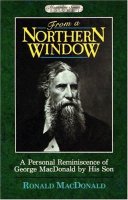
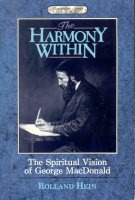
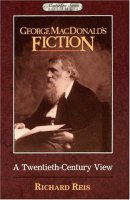
The Masterline Series of studies on George MacDonald, edited by Michael Phillips (Sunrise Books, 1989)
Volume 1: From a Northern Window: A Personal Reminiscence of George MacDonald by His Son by Ronald MacDonald
Volume 2: The Harmony Within: The Spiritual Vision of George MacDonald by Rolland Hein
Volume 3: George MacDonald's Fiction: A Twentieth-Century View by Richard Reis
The first book is an interesting look at George MacDonald through the eyes of one of his sons. It was definitely worth reading, though not sufficiently well-written to encourage me to anticipate reading it again.
The other two are another story; I found them dust-and-ashes. Not dry, as in pedantic or overly academic, but of almost no value to me. And not for obvious reasons.
Both these authors have a good deal of respect for MacDonald and are fulsome in their praise of some of his works, so my active dislike of their books is not because they abuse one of my all-time favorite authors. C. S. Lewis, whose praise of MacDonald is as high as one person can give to another, acknowledges that while some of his works are unsurpassed, many others are clearly mediocre. As far as I can tell his points are valid, so the fact that these authors say the same thing can't be the sole reason I find their works unprofitable. I have to say, though, that some of what the literary world finds of no value I think is great. MacDonald was a preacher, and the fact that his philosophical ideas come through in his books is a plus for me. Not to mention that, unlike the literary world, I like happy endings and characters who are "too good to be true."
Partly, I'm sure, my dislike of these books is because they are in the genre of literary criticism, and the process of pulling apart a book to see what it is made of is distasteful to me. (Michael Ward's Planet Narnia is the only exception that comes to mind.) I've always been a voracious reader and it's obvious how much I now enjoy writing, but I hated English class at every level of school, and the process of taking apart a good (or bad) story, and guessing at what the author "really" meant, was largely responsible for that. I especially resent the apparent need to find "obvious" sexual meanings embedded in otherwise lovely and as far as I can tell innocent stories—which both Hein and Reis do. Possibly MacDonald meant the sexual references—he was a man, and as a gender men do have some extraordinary ideas about sex, plus he had eleven children—but I'm skeptical.
That aside, I did pull out a few quotes I wanted to remember:
These are from Ronald MacDonald's From a Northern Window.
After his abandonment of the predicant profession, he never took remuneration for a spoken sermon; and never, I am sure, refused his preaching, from whatever Christian denomination the invitation might come. I remember very well his saying that the Unitarians were among the most instant to get him to preach; and that he always stipulated for liberty to maintain the doctrine of the Trinity; by which orthodoxy I do not think he ever gained a Sunday's rest. (p. 35)
His own family of eleven children, whatever the narrowness of accommodation or banking-account, seemed never enough to keep the house comfortably full. During his lecturing tour in the United States, in 1872-3, it was widely reported that he was father of thirteen children—a mistake proved to be due to his frequent statement that he had "the wrong side of a dozen." (p. 50)
These from The Harmony Within by Rolland Hein.
MacDonald felt deeply that the great possibility for mankind is to grow into complete godlikeness, so that men shall be one with God. This does not mean that men shall be absorbed into God, as more pantheistic systems hold; rather, as men mature into moral and spiritual perfection, they develop at the same time a more distinct individuality. ... MacDonald's vision is one of an innumerable multitude of redeemed individuals with a final unity of will and spirit. (p. 30)
God made each man unique, MacDonald insists, and God intends that each maintain his uniqueness, that he might serve and worship the Lord in a way no one else can. The result is that each man both learns and teaches something of God in his relations with his neighbors. (p. 68)
And these are from George MacDonald's Fiction by Richard Reis.
More interesting ... are MacDonald's views on God's self-expression in nature. "This world is not merely a thing which God hath made, subjecting it to laws; but it is an expression of the thought, the feeling, the heart of God himself." "Nature is brimful of symbolic and analogical parallels to the goings and comings, the growth and changes of the highest nature in man." "The faces of some flowers lead me back to the heart of God; and, as his child, I hope I feel, in my lowly degree, what he felt when, brooding over them, he said 'They are good'; that is, 'They are what I mean.'" "There is not a form that lives in the world, but is a window cloven through the blank darkness of nothingness, to let us look into the heart, and feeling, and nature of God." (p. 38)
I shall not discus at much length MacDonald's theories about the interpretation of Christ's words in the New Testament, because his views are essentially those of every other interpreter—that Jesus taught precisely what the interpreter believed all along. (p. 37)
Having recently read C. S. Lewis' The Pilgrim's Regress, I found a couple of quotations about extremism that I'm saving here.
I do not admire the excess of one virtue unless I am shown at the same time the excess of the opposite virtue. A man does not prove his greatness by standing at an extremity, but by touching both extremities at once and filling all that lies between them. — Blaise Pascal
Opposite evils, far from balancing, aggravate each other...widespread drunkenness is the father of Prohibition and Prohibition of widespread drunkenness. — C. S. Lewis
Permalink | Read 1533 times | Comments (0)
Category Inspiration: [first] [previous] [next] [newest]
We found this at an exhibit on medieval music at the Veste Oberhaus museum in Passau, Germany:
A worship service without music was unthinkable. Almost every instrument was available as accompaniment for the singers: from the glockenspiel to the organ, from the harp to the guitar and from the flute to the horn.
Just sayin'.
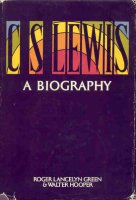 C. S. Lewis: A Biography by Roger Lancelyn Green and Walter Hooper (Harcourt Brace Jovanovich, 1974)
C. S. Lewis: A Biography by Roger Lancelyn Green and Walter Hooper (Harcourt Brace Jovanovich, 1974)
I'm already convinced I made the right decision to begin my C. S. Lewis "retrospective" with biography. Learning about an author's personal life may not be the best introduction to his works, but when I'm facing a list of nearly 50 books that range from those I haven't yet read (e.g. The Discarded Image) to those I've read literally dozens of times (e.g. the Narnia books), it's probably a good idea to remind myself of the man behind the words.
I can recommend this biography without qualification, even though there were one or two spots that annoyed me, such as when the authors accuse Lewis of exaggerating the horrors of one of his childhood schools. "Oh, come on; it isn't that bad" are harsh words for a sufferer to bear. Lewis was safely dead ten years before the book was published, but I'm sure he heard similar comments in his lifetime.
What struck me most about Lewis this time was how brilliant he really was, from his earliest days. The sheer volume of his reading is phenomenal, and it seems he forgot nothing. He read adult books as a child and children's books as an adult, enjoying them strictly on their merits. He suffered greatly in the normal British educational system, but absolutely thrived in his two and a half years, beginning at age 14, with a private tutor (William T. Kirkpatrick) who would have terrified most children. "Some boys would not have liked it [but] to me it was red beef and strong beer."
"If ever a man came near to being a purely logical entity, that man was Kirk*", Lewis decided, and his own acutely logical mind was to a great extent formed and sharpened by Kirkpatrick's. Kirkpatrick's outstanding conviction was that language was given to man solely for the purpose of communicating or discovering truth. The general banalities and "small-talk" of most people did not enter into his calculations. "The most casual remark was taken as a summons to disputation." To a mere "torrent of verbiage" he would cry "Stop!", not from impatience, but because it was leading nowhere. More sensible observations might be interrupted by "Excuse!", ushering in some parenthetical comment. Full approval would be encouraged by "I hear you"—but usually followed by refutation: "Had I read this? Had I studied that? Had I any statistical evidence? And so to the almost inevitable conclusion: 'Do you not see then that you had no right...' "
Lewis arrived ... on Saturday, 19 September 1914, and two days later he was flung straight into Homer, of whom he had never read a word, nor had any introduction to the Epic dialect, having only studied the straight Attic of Xenophon and the dramatists. Kirkpatrick's method was to read aloud twenty lines or so of the Greek, translate, with a few comments and explanations for another hundred lines, and then leave his pupil to go over it with the aid of a lexicon, and make sense of as much of it as he could. It worked with Lewis, who had no difficulty in memorizing every word as he looked up its meaning. Kirkpatrick at this stage seemed to value speed more than absolute accuracy, and Lewis soon found himself understanding what he read without translating it, beginning to think in Greek.
Of Lewis, his tutor said,
He was born with the literary temperament and we have to face that fact with all it implies. This is not a case of early precocity showing itself in rapid assimilation of knowledge and followed by subsequent indifference or torpor. ... It is the maturity and originality of his literary judgements which is so unusual and surprising. By an unerring instinct he detects first rate quality in literary workmanship, and the second rate does not interest him in any way. ... [He] has a sort of genius for translating. ... He has read more classics in the time than any boy I ever had, and that too very carefully and exactly. In Homer his achievement is unique. ... In the Sophoclean drama, which attains a high level in poetic expression ... he could beat me easily in the happy choice of words and phrases. ... He is the most brilliant translator of Greek plays I have ever met.
With that as background, consider how near Lewis and Oxford University—with which he had fallen in love at first sight—came to missing out on each other. Without trying to understand and explain the British university system, I can boil it down to this: Lewis was accepted to Oxford pending the successful completion of a particular examination. In this, the brilliant student failed the mathematics portion. He was admitted anyway, because he had volunteered for Army service (World War I) and he went through the Officers' Training Corps there. The theory was that he would be working on algebra (his downfall) as he could and would re-take the exam after his service ended. He tried, but never mastered the subject well enough to pass the exam. Fortunately for all of us, after the war veterans were specifically exempted from the need to pass that exam. "Otherwise," Lewis observed, "I should have had to abandon the idea of going to Oxford."
I shudder at the close call, and while I have difficulty fathoming the idea that someone so intelligent, skillful, and hard-working could fail to understand algebra, I offer this story as encouragement to those who may find themselves struggling now that so many high schools have made the subject a requirement for graduation. You can be brilliant and successful without algebra! I just hope you don't have to fight a war to get where you want to go, and that you will be able to afford an assistant to help you with the math of daily life. Algebra was not Lewis's only problem: He never managed to grasp the difference between gross and net profit when it came to his book sales, and had to be saved from dire financial straits by friends who set up a system whereby he could be exceedingly generous to others without going bankrupt himself.
If you are new to the works of C. S. Lewis, his own writings are the place to start. I would suggest beginning with either the Narnia books or Mere Christianity, depending on your temperament. But if you're interested in learning more about the brilliant, complex, surprising person behind all the books, Green & Hooper's book is a good bet.
*Some would say Spock, not Kirk, but that's another story.
Words of wisdom for our time from George MacDonald (from The Hope of the Gospel: "God's Family").
One thing is plain—that we must love the strife-maker; another is nearly as plain—that, if we do not love him, we must leave him alone; for without love there can be no peace-making, and words will but occasion more strife. To be kind neither hurts nor compromises.
Permalink | Read 1447 times | Comments (0)
Category Inspiration: [first] [previous] [next] [newest]
One hundred years ago today, on November 11, 1918, on the 11th hour of the 11th day of the 11th month, the armistice was signed that ended battle on the Western Front of World War I, the war that devastated a generation of Europeans, and set the stage for World War II two decades later. The cost was personal on this side of the Atlantic as well.
Veterans' Day is a time for honoring all veterans, but this year it seems appropriate to feature WWI. Those closest to us include:

Hezekiah Scovil Porter, son of Wallace and Florence (Gesner) Wells Porter. Porter's granduncle on this mother's side. Army, 26th Division, 101st Machine Gun Battalion. Killed in action near Chatêau-Thierry, France, July 22, 1918. His story is elaborated here: The Complete World War I Diary of Hezekiah Scovil Porter.

Harry Gilbert Faulk, son of Olaf Frederick and Hilma Justina (Reuterberg) Faulk. Porter's granduncle on his father's side. Army, 26th Division, 101st Machine Gun Battalion. Wounded in action near Chatêau-Thierry, France, July 25, 1918. Died of his wounds later that day. Here is a (mostly accurate) article about him.
Howard Harland Langdon, son of Willis Johnson and Mary Lucy (Wood) Langdon. My grandfather on my father's side. Army, 219th Aero Squadron, served in England. He didn't fly the planes, but kept them air-worthy.
George Cunningham Smith, Sr., son of Nathan and Issyphemia (Cunningham) Smith. My grandfather on my mother's side. Army, 5th Engineers, Company B, served in France. His father fought in the Civil War (16th Pennsylvania Cavalry, Company B).
Thank you to all who have stood "between their lov’d home and the war’s desolation."
Permalink | Read 2116 times | Comments (0)
Category Random Musings: [first] [previous] [next] [newest]
 C. S. Lewis: Images of His World by Douglas Gilbert and Clyde S. Kilby (Eerdmans, 1973)
C. S. Lewis: Images of His World by Douglas Gilbert and Clyde S. Kilby (Eerdmans, 1973)
This book of photos—places, people, manuscripts—from the world of Clive Staples Lewis was a gift from Porter eons ago, probably not many years after its publication. I read it then, of course, and just re-read it as part of my newest reading project: binge-reading all the books in our home library by or about a particular author. I have previously tackled George MacDonald, J. R. R. Tolkien, William Shakespeare (plays only, read or viewed), and Miss Read (Dora Jesse Saint). Since the C. S. Lewis collection is exceeded only by our George MacDonald books, this is no small project.
Often I read the books in publication order, because I think that gives insight in to an author's growth and development. I'll do some of that with Lewis, but I thought I'd start with a biography, and this book seemed good to read even before that ("Book 0"), to give context to what I will be reading. It was a good choice.
It's largely a picture book, no surprise, so there's not a lot to quote from, but there were two I couldn't resist marking.
In spite of his academic success [at Malvern College], Lewis wrote home in March 1914, imploring his father to take him away. His brother Warren commented: "Much to my surprise, my father reacted to this letter by making an immediate and sensible decision. Jack was to leave Malvern at the end of the school year.... The fact is that he should never have been sent to a public school at all. Already, at fourteen, his intelligence was such that he would have fitted in better among undergraduates than among school boys; and by his temperament he was bound to be a misfit, a heretic, an object of suspicion within the collective-minded, and standardising, Public School system."
Granted, what the Brits mean by "public school" is not the American version, but the point about how school life treats those who don't fit in—especially if they are particularly intelligent—is still the same. It is worth noting that Warren himself was very happy at Malvern, yet he also said (taken from another source), "He was, indeed, lucky to leave Malvern before the power of this system had done him any lasting damage."
After almost 30 years as a professor of English Language and Literature at Magdalen College of Oxford University, Lewis became Chair of Medieval and Renaissance English at Magdalene College, Cambridge.
I think I shall like Magdalene better than Magdalen. It's a tiny college (a perfect cameo architecturally) and they're all so old fashioned, and pious, and gentle and conservative—unlike this leftist, atheist, cynical, hard-boiled, huge Magdalen. Perhaps from being the fogey and "old woman" here I shall become the enfant terrible there.
I can identify with that. Put me with liberals, and my conservative side predominates. Put me with conservatives, and my liberal side comes to the fore. Always the troublemaker.
Some of my friends predicted a Blue Wave. Some of my friends predicted a Red Wave. Instead, I awoke this morning to a sea of purple.
I'm good with that. I'm a purple kind of person, politically. I belong to a particular party only so that I can participate in the primary elections. Yesterday I voted for some Democrats and some Republicans. I won some races and lost others. Of one thing only am I certain: the victors will be neither as bad as I fear nor as good as I hope.
I'm also fine with what they're calling a "mixed government." No party should have an easy time pushing its own agenda: we lose the checks and balances that allow the voices of the rest of the country to be heard.
However, I do have a few words for the winners:
- If you won your race by a 51/49 margin, do not intone, "The people have spoken" and think you have a mandate for your ideas. Never forget that half your constituency do not want you as their leader.
- If you won by a landslide, I say the same thing. A rare 60/40 victory, or even an unheard of 90/10, does not mean you have the right to ignore the minority. Never forget that you are now as responsible for looking after their interests and considering their needs and values as you are those of the people who voted for you.
- Remember that you were elected to serve, not to be served.
That would make American great.
The Kindle edition of all three of C. S. Lewis's Space Trilogy books in a single volume is currently $1.99, a 91% price decrease. I don't know how long that will last, but it's unbeatable if you are at all interested.
Permalink | Read 1293 times | Comments (0)
Category Everyday Life: [first] [previous] [next] [newest]
Today being the REAL Election Day, I voted. I can't say it was the pleasant experience it usually is. Oh, the poll workers were as friendly and as helpful as usual, but the room was chaotic and I left not feeling so confident about some of my fellow-voters. I write this now, before the results are known, so I can't be biased by the results, whatever they may be.
Several people seemed to be having procedural compliance issues. Now the voting procedure in Florida is easy: be registered, and show up with an acceptable photo ID with signature. There are other ways, such as a photo ID without signature plus some other ID with signature. Or voting a provisional ballot and having your signature matched with your voter registration signature. They really bend over backwards to make voting easy here. They also make it very clear before you go to vote what you need to bring with you to the polling place.
For just one example of the confusion, the man in front of me was insisting that they accept his driver's license. Normally, that's the easiest way: they can scan your license and you're in. But this man's license was from another state.
Poll worker: When did you move here?
Voter: Eight months ago. And I registered to vote.
Poll worker: But you didn't transfer your driver's license. You must do that within 30 days of moving here. This license is not valid.
Voter: Why should I get a new license? This one hasn't expired yet.
(In case you are wondering, this wasn't a language issue.)
At least those who believe that the mere act of voting is meritorious in and of itself will be happy. With all the other ways Florida has of casting one's ballot, and the fact that I usually vote mid-morning, the polling places are usually pretty empty when I arrive. Not this time!
I was taught to view voting as a civic duty, and have always believed that. I still do. It's almost a civil sacrament, the "outward and visible sign" of good citizenship. With that in mind, I have observed that Americans have made some of the same mistakes with regard to voting as the Christian Church through the ages had made with its own sacraments.
Ideally, the sacraments are made available to all Christians ("citizens") who are deemed to have sufficient understanding of and respect for what they are doing. Different churches disagree considerably on what constitutes sufficiency, but that's the general idea. Two extremes may be noted, however.
- Some churches, especially in the past, have greatly restricted the sacraments: to those of their own church, those who are of at least a certain age, those who have undergone sufficient instruction, those who have been thoroughly examined and been found to be fit, etc. They take very seriously the Bible's admonitions not to partake of the sacraments lightly—but by doing so have excluded many who should be welcomed.
- Some churches, taking seriously the idea that the effectiveness of the sacraments is based on God's grace, have thrown wide the doors with no concern that the participants have genuine faith or knowledge of what they are doing. Historically, this has resulted in politically- and economically-motivated, or even forced, "conversions," to the great detriment of the Church (not to mention the individuals involved).
As regards its secular, civil religion, America has certainly been guilty of the former. Today, however, we appear to have veered crazily toward the latter. The effectiveness of voting in and of itself is touted as enthusiastically as in the most egregious historical misuse of ex opere operato by the Church.
Everywhere, I am surrounded by the admonition to VOTE! Not a word about being educated on the issues and the candidates, not a word about considering the needs of others and the good of the country rather than one's own self-interest, not a word about casting an intelligent and wise vote—simply VOTE! Cast your ballot and let the magic of voting do its work.
Baptize a man against his will and he becomes a Christian. Require a man to attend Mass on Sunday, and it doesn't matter if he's a Mafia Don.
What's this "set your clocks back" warning I heard all over the media yesterday?
What's a clock?
I wonder how archaic this advice really is. I also wonder why people raise so many objections to "changing the clocks" twice a year.
Yes, I know: I've campaigned against the time changing. But that's because I want to stay on Standard Time (aka real time, sun time, normal time) all year 'round and not use Daylight Saving Time—one of Ben Franklin's less reasonable ideas—at all. The change itself is trivial for one accustomed to dealing with time zone changes.
But when you woke up this morning, how did you know what time it was?
I'm betting most people checked their phones—phones which are smart enough to make the time change without our help.
If I had set my computer clock back an hour, it would now be wrong.
Yes, we changed our clocks yesterday—and I remarked that we have far too many of them that need changing. I can't help believing that they are an anachronism. Houses in the future may still have clocks, but I'm betting more and more of them will be smart enough to change themselves. And in any case, people will still rely more on their cell phones to wake them up in the morning and get them where they need to go on time.
The "change your clocks" sermons are being preached to an ever-dwindling congregation.
Permalink | Read 1782 times | Comments (3)
Category Random Musings: [first] [previous] [next] [newest]
Pardon me while I briefly indulge my Inner Cynic.
Strangers cross your borders unbidden. They are miserable, hungry, and lack the skills necessary to live in your land. You are compassionate. You welcome them, feed them, and teach them survivial skills. You enjoy the boost they bring to your economy.
Ask the Native Americans how that worked out for them.
Happy Thanksgiving.
Permalink | Read 1424 times | Comments (8)
Category Random Musings: [first] [previous] [next] [newest]

